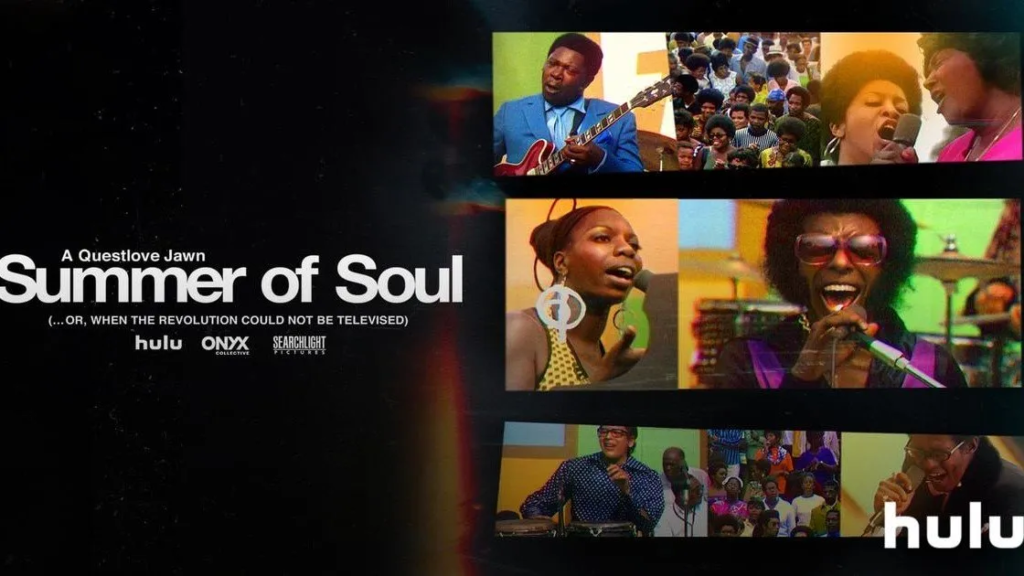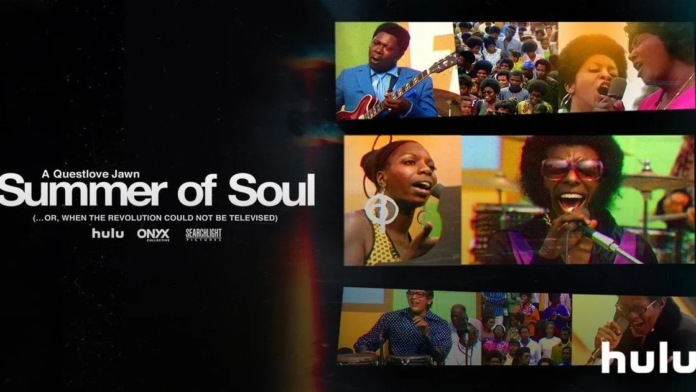When the Revolution Could Not Be Televised
Mike Furches • Jul 25, 2021

In the Summer of 1969, my late wife was just outside of Woodstock during the summer of Woodstock. It was a season, a time, a music festival I’ve heard about most of my life. There was another festival going on that Summer during August in Harlem New York known as the Harlem Cultural Festival. It has since come to be known as the Summer of Soul. Over the years hours and hours of footage was taken, professionally shot, and unfortunately put back not to be seen until only recently to be put in the form of a fantastic documentary by Ahmir “Questlove” Thompson. Questlove known for his leading of the Roots Band on The Tonight Show as well as being a touring artist with the same band has put together a documentary that comes out of a love for music and history, a history that we unfortunately almost didn’t know about.
One of the things that makes this documentary so special is its historical recollection of the times, dealing with everything from race relations to music and from the political climate to the influence of gospel and the style of dress. We see a concise history and explanation of the times, at times, with eye-opening testimony and experiences.
There is a large segment of this documentary that deals with the influence of Gospel music and the influence Gospel had on the movement, be it politically or musically. We see and hear testimony from some of today’s prominent political leaders like Jesse Jackson which seems to go against the grain of much of evangelical Christianity, but we also see the impact of the Gospel on people who had such an impact like the Edwin Hawkins Singers and Mavis Staples among others. Here we see a time when the Gospel was transformed from one group to another to fit individual needs more than to fit the necessary needs of the Gospel. We also see through the solid foundational faith of some that had an impact on others through their music. We see this especially in a segment that deals with the song Oh Happy Day. We even hear of how the gospel had an impact on such greats as Sly and the Family Stone.
There is no doubt as to the impact of this movie in a historical narrative. As I watched with my fiancé, an Afro-American we had discussions about numerous things. Her late father grew up in Harlem around this period, shortly before and we wondered what he would have thought of the movie. What would he have thought of the festival and the movie’s presentation on the times? For many who lived during these times, this movie will raise questions. It will also bring back memories. For some, it will provide some understanding as to the climate we live in now. There is a beautiful impact the Latin and Afro-American Community can have on society if we only take the time to better understand each other’s roots and celebrate those roots and history.
There is far more story to the Summer of Soul than I anticipated. The music that is in the documentary provides a toe-tapping, get up and dance feeling that can’t be resisted. From the feel-good R&B of artists like Sly and the Family Stone to the heart-felt gospel music of the artists in the movie. The music and themes remind me a great deal of Zydeco music in the way it touches the soul. The music represents that even in struggle, there could be joyous times for those living in Harlem and around the world. It shows in short, the impact of music on one’s emotions.
The only unfortunate aspect of this documentary is it left me wanting far more than it gave me. I would love to have seen this as a series as opposed to a 2-hour movie. I wanted more music, more acts, I just wanted more. It’s that good and that entertaining. There wasn’t a boring moment in it, and I anticipate seeing it again.
On a scale of 1 – 10 for being just a tad short and wanting more, I am going to still give it a wonderful and deserving 8


